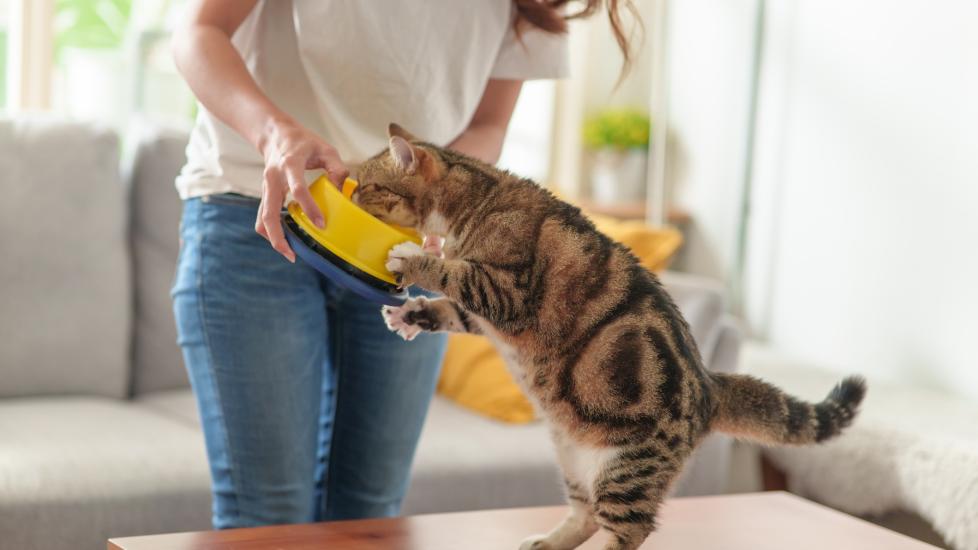Can Cats Eat Rice?
Rice is a popular staple of our diet, whether it’s stuffed into a burrito or the base of a curried dish. But can cats eat rice safely? And is it good for them? Here’s what to know before letting your cat nibble from your plate.
Is Rice Good for Cats?
While rice isn’t toxic to cats, it isn’t good for them, either. Unlike dogs, which are considered omnivores (meaning they can obtain nutrition from many different sources), cats are obligate carnivores and need to get the bulk of their nutrition from meat.
Although cats may eat carbohydrates on occasion, carbs don’t provide kitties any nutritional benefit. And even worse: Carbs may lead to obesity in cats, which contributes to other health problems such as diabetes, arthritis, and heart disease.
Vet Recommended Cat Food
Can Cats Eat White Rice?
White rice is not toxic to cats and can be eaten in small amounts if it’s well-cooked, plain (with no butter or spices), and fed in conjunction with a balanced commercial cat food. However, white rice does not add any nutritional benefits for cats. Unless it’s being fed for a specific reason, it’s probably best avoided.
Can Cats Eat Brown Rice?
Just like with white rice, brown rice can also be eaten in small amounts by cats and probably has a slightly improved nutritional profile over white rice. However, because cats are unable to process the heavy carbohydrate load present in rice, it’s generally not well digested and does not add to healthy nutrition in cats.
Can Kittens Eat Rice?
Growing kittens require a more carefully balanced nutrient-rich diet than adult cats to promote growth and health. Because of this, kittens should not be fed empty calories in the way of carbohydrates, which are difficult for them to process and do not provide much nutrition. Just say no to rice for your kitten!
Can Cats Have Rice as a Remedy for Stomach Upset?
Dogs are often fed a bland diet of rice and hamburger when they have an upset stomach. But does this work for cats as well? Unfortunately, the answer is no.
Because rice is difficult to digest for cats, it does not help soothe the gastrointestinal tract as well as it does for dogs. Vomiting in cats—whether the vomit is hairballs, dry food, or liquid puddles—is most commonly related to a true medical problem (unlike vomiting in dogs, which is often because they ate something they shouldn’t have). If your kitty is vomiting more than once or twice per month, speak with your veterinarian and find out whether additional testing is needed. This is especially important if they show any other signs like losing weight, diarrhea, or lethargy.
How Much Rice Can Cats Eat?
If you decide to share any rice with your kitty, keep the amounts very small, limited to less than a tablespoon of rice per week.
If your kitty accidentally gets into a large portion of rice or eats any amount of uncooked rice, call your veterinarian. Be alert for possible side effects, which include:
-
Stomach discomfort
-
Vomiting
-
Diarrhea
-
Bloating
-
Straining in the litter box
-
Lethargy
If any of these signs are present, call your veterinarian or an emergency clinic right away.
What To Feed Your Cat Instead of Rice
If you would like to share food with your cat, there are many other healthier human foods that you can offer. These are primarily meat- or fish-based foods, which are more natural for cats to eat and include:
-
Chicken
-
Beef
-
Tuna
-
Salmon
Always make sure the meat is cooked, free of spices or other ingredients, and that any inedible parts (such as bones) are removed. Keep the portion sizes small and watch your cat for any adverse effects.
Featured Image: Kannika Paison/E+ via Getty Images
